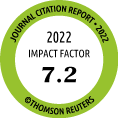|
G Ciprandi,1 G Cadario,2
C Valle,3 E Ridolo,4 M Verini,5
M Di Gioacchino,6 M Minelli,7 S
Gangemi,8 V Sillano,9 C Colangelo,10
V Pravettoni,11 R Pellegrino,12 P
Borrelli,13 A Fiorina,14 A
Carosso,15 A Gasparini,16 GG
Riario-Sforza,17 C Incorvaia,17 P
Puccinelli,18 S Scurati,18 F Frati18 |
|
1Department of Internal Medicine,
University of Genoa, Genoa, Italy
2Allergy and Clinical Immunology Unit, San Giovanni
Battista (Molinette) Hospital, Turin, Italy
3Allergy Unit, San Paolo Hospital, Milan, Italy
4Department of Clinical Sciences, University Hospital,
Parma, Italy
5Unit of Allergy and Respiratory Pathophysiology,
Pediatrics, Ospedale Clinicizzato, Chieti, Italy
6Department of Medicine and Sciences of Ageing,
Immunology and Occupational Medicine, University G.
DAnnunzio, Chieti, Italy
7Department of General Medicine, Allergy, Campi
Salentina Hospital, Lecce, Italy
8Unit of Allergy and Clinical Immunology, Policlinico
Hospital, Messina, Italy
9Ambulatorio di Allergologia di Corsico, Az. Osp di
Legnano, Italy
10Ambulatorio di Allergologia, Ospedale Spirito Santo,
Pescara, Italy
11U.O. Complessa di Allergologia e Immunologia Clinica,
Fondazione IRCCS Ospedale Maggiore, Policlinico, Regina
Elena, Milan, Italy
12Allergology, Ospedale Martini, ASL2, Turin, Italy
13Allergology, Ospedale Regionale, Aosta, Italy
14Pneumologia e Allergologia territoriale, ASL 2,
Savona, Italy
15Allergology, ASL 4, Turin, Italy
16Ambulatorio di Allergologia, Az. Osp. Melegnano,
Presidio Osp. Cernusco sul Naviglio, Milan, Italy
17Allergy/Pulmonary rehabilitation, ICP, Milan, Italy |
|
Abstract |
|
Background:
Quality of life (QOL)
is an important
issue in allergic
rhinitis and has
been evaluated in a
number of studies
that have shown how
it is impaired in
untreated patients
and improved by
effective treatment.
However, there are
no data concerning
QOL after sublingual
immunotherapy (SLIT)
in polysensitized
patients.
Objective: To
evaluate the effect,
in real-life
clinical practice,
of SLIT on QOL in a
population of
polysensitized
patients with
allergic rhinitis.
Methods: We
prospectively
evaluated 167
consecutively
enrolled
polysensitized
patients with
allergic rhinitis.
QOL was measured in
all cases with the
Rhinoconjunctivitis
Quality of Life
Questionnaire at
baseline and after 1
year of SLIT
(performed in
approximately 70% of
cases using single
allergen extracts
provided by the same
manufacturer).
Results: The
most frequent causes
of sensitization
were grass pollen,
Parietaria, and
house dust mites.
The mean number of
sensitizations per
patient was 3.65.
SLIT was performed
with 1 extract in
123 patients
(73.6%), with 2
extracts in 31
patients (18.6%),
and with more than 2
extracts in 13
patients (7.8%). The
mean values of all
the QOL items
improved
significantly (P<.01
in all cases), with
the following
reductions noted:
activities, 3.96 to
2.89; sleep, 2.07 to
1.56; general
problems, 2.16 to
1.5; practical
problems, 3.69 to
2.58; nasal
symptoms, 3.57 to
2.50; eye symptoms,
2.92 to 1.83; and
emotional aspects,
2.2 to 1.44.
Conclusions:
This study provides
evidence that QOL
can be improved in
polysensitized
patients treated
with SLIT, and that
the use of just 1 or
2 allergen extracts
seems to be
sufficient and
effective in terms
of improving QOL.
Key words:
Allergic rhinitis.
Polysensitization.
Sublingual
immunotherapy.
Quality of life.
|
|
|
|
| |
|
|



